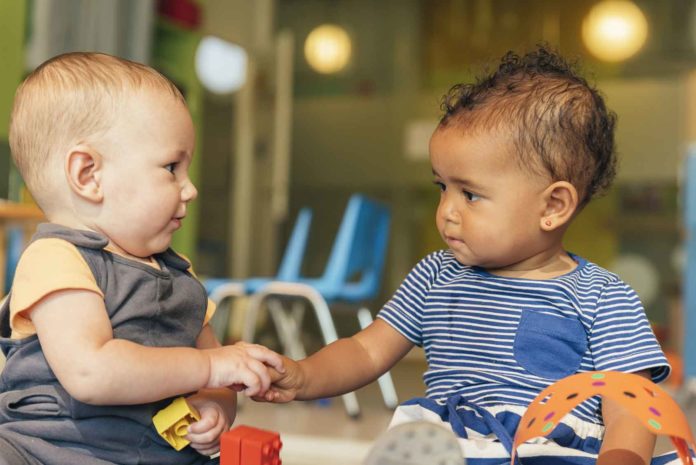When do babies start to talk? What are their first words? Do girls really learn to talk earlier? How does living in poverty affect how quickly children develop? How do we know when a child is falling behind in their language development and needs a little bit of extra help?
In a new project by the University of Liverpool, scientists are trying to figure out the answer to these questions. They have featured on an exciting new BBC 2 programme called ‘Babies: Their Wonderful World’ starting at 9 pm today.
Scientists asked over 2000 parents of children aged 8 to 30 months to tell us what words their children can say, by filling in a UK-CDI. The CDI involves questionnaires to measure children’s language knowledge at different ages. CDIs are great because they are filled in by parents, at home, at a time that suits them.
The pilot information uncovered some novel discoveries about regional contrasts over the UK. A portion of these is easy to clarify. For instance, in Wales, Yorkshire and Humber, and the East of England more kids utilized tea to allude to a meal than a drink, yet In London, Scotland, South West, South East, West Midlands, and East Midlands tea is utilized to allude to a beverage considerably more regularly.
This bodes well; kids in the north of England utilize the word tea to allude to the night feast, though children in the south and West Midlands utilize dinner instead.
Dr. Michelle Peter from the University of Liverpool’s ESRC LuCiD Centre, said, “Babies in London are least likely to have thanked you and sorry amongst their first words. But on the other hand, they are also the children who are most likely to say please and yes.”
“So they may not be thanking you for things, but at least they are asking you for them politely! And for those of us who know anything about toddlers, having a child who says yes – instead of no all the time – is a godsend.”
Professor Caroline Rowland who ran the UK-CDI pilot project said, “We are now analyzing these results carefully to decide which words to include in the final version of the UK-CDI. This is important because CDIs need to contain words that discriminate well between young and old children, and between fast and slower talkers.”
“We will then collect more information from over 1000 parents using our new CDI, and use this information to build up a picture of how UK children learn to talk between 16 and 30 months of age.”
“This will have a substantial impact on our knowledge of how children learn to talk here in the UK and provide health visitors and preschool teachers with the information they need to identify which children might be slow to learn to talk and put interventions in place to help them speed up.”
